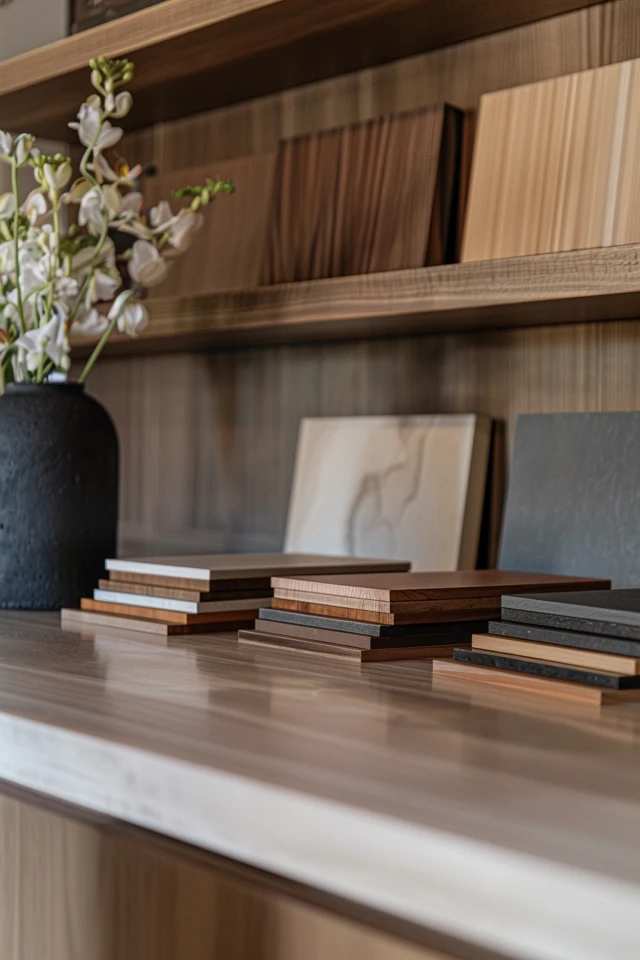Closet design is a fascinating and lucrative career that often goes unnoticed. The field originated in California, with companies like California Closets leading the way. Becoming a closet designer requires a combination of left brain and right brain skills. Left brain skills involve measuring, math, and space planning, while right brain skills involve connecting with clients and understanding design.
There are different pathways to becoming a closet designer, such as working for large companies or smaller local businesses. Training programs and mentoring opportunities are often available to help develop the necessary skills and knowledge for success in this field.
Key Takeaways:
- Being a closet designer offers a fascinating and lucrative career path.
- Combining left brain skills and right brain skills is essential for success in this field.
- There are various pathways to becoming a closet designer, including working for large companies or local businesses.
- Training programs and mentoring opportunities can enhance the necessary skills and knowledge.
- The demand for customized closet solutions continues to rise, providing a positive career outlook.

Options for Becoming a Closet Designer
When it comes to pursuing a career as a closet designer, there are several options available to aspiring professionals. Whether you prefer working for a large closet company or getting hands-on experience with a smaller local company, there are various pathways you can take to develop your skills and expertise.
If you aspire to work with renowned companies in the industry, such as California Closets or Closet Factory, you may find it beneficial to approach them directly. These companies often offer in-house training programs that can provide you with the necessary knowledge and skills to excel as a closet designer.
On the other hand, joining smaller local companies can give you the opportunity to learn from experienced professionals in the field. By working closely with owners and other members of the design and sales team, you can gain invaluable insights and practical experience that will enhance your abilities as a closet designer.
While there are no specific education requirements or certifications to become a closet designer, having a background in interior design or related fields can be advantageous. These disciplines often provide a strong foundation in design principles, space planning, and visualization techniques, which are essential for creating functional and aesthetically pleasing closet solutions.
However, if you are looking to further enhance your credentials and differentiate yourself in the industry, obtaining certifications from reputable organizations can be a valuable asset. Organizations like the National Association of Productivity and Organizing Professionals (NAPO) or the American Society of Professional Organizers (ASPO) offer certification programs that can validate your expertise and demonstrate your commitment to professionalism in the field.
Key points:
- Approach large closet companies like California Closets and Closet Factory for in-house training programs.
- Join smaller local companies to learn from experienced professionals.
- A background in interior design or related fields can be beneficial.
- Certifications from organizations such as NAPO or ASPO can enhance your credibility.

Skills and Qualities of a Closet Designer
Being a successful closet designer requires a combination of technical skills and personal qualities. Let’s take a closer look at the key skills and qualities that make a great closet designer:
1. Technical Skills
Accurate Measuring: Closet designers need to be precise in their measurements to ensure that the final design fits perfectly into the available space.
Space Planning: Understanding how to optimize space and create efficient storage solutions is essential for a well-designed closet.
Construction and Installation Knowledge: Having an understanding of construction techniques and installation processes helps designers bring their ideas to life and ensure a seamless installation.
Incorporating Design Trends: Staying up to date with the latest design trends and being able to incorporate them into closet designs is crucial for providing clients with modern and appealing solutions.
2. Personal Qualities
Strong Communication Skills: Closet designers must be able to effectively communicate with clients to understand their needs, preferences, and budget constraints. Clear communication helps build trust and allows for successful collaboration throughout the design process.
Empathy: Understanding and relating to clients’ unique lifestyle and organizational needs enables designers to create personalized and functional closet designs.
Building Rapport with Clients: Building a strong rapport with clients cultivates long-lasting relationships and leads to positive referral and repeat business.
Consultative Selling: Having a love for consultative selling means that designers can educate clients about the benefits of a customized closet solution, making them feel confident in their investment.
By combining technical expertise with strong personal qualities, closet designers can create functional and visually appealing storage solutions that meet their clients’ needs and exceed their expectations.
Image: Closet designer showcasing technical skills and personal qualities

Career Outlook and Salary for Closet Designers
The career outlook for closet designers is promising, driven by the increasing demand for custom closet solutions in the United States. As the home improvement industry continues to experience growth, more homeowners are recognizing the importance of organizing and decluttering their living spaces, creating a need for professional closet design services.
Closet designers typically earn a commission based on the job totals they sell, offering the potential for high earnings. While the average annual compensation for closet designers in smaller markets ranges from $30,000 to $40,000, designers working in larger markets have even higher earning potential.
By building a solid client base over time and consistently delivering exceptional service, closet designers have the opportunity to earn annual incomes of over $100,000. Success in this field is closely tied to maintaining consistency, demonstrating dedication, and establishing strong client relationships.

